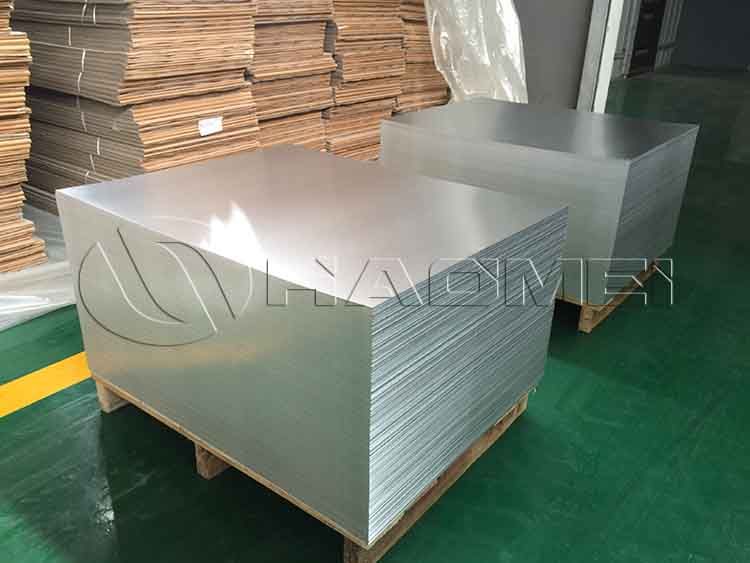





2025-07-14
In daily life, canned beverages can be seen everywhere. They are light, easy to carry and well sealed, which are deeply loved by consumers. Behind this small can, the aluminum can sheet plays a vital role.
Aluminum alloys are widely used in can manufacturing mainly due to their many advantages. First, aluminum has a low density, which makes aluminum alloy cans light and easy to transport and carry. Secondly, aluminum alloys have good ductility and can be made into cans with regular shapes and precise sizes through various processing techniques.

Furthermore, aluminum alloys have strong corrosion resistance, which can effectively prevent beverages from deteriorating and extend the shelf life of products. In addition, aluminum alloys also have a high recycling value, which conforms to the concept of environmental protection. Its high recycling rate can save resources and reduce production costs.
3004/3104 aluminum alloy
3004 and 3104 aluminum alloys play an important role in the manufacture of can bodies. They belong to the Al-Mn alloy system, have good forming and processing performance, corrosion resistance and weldability, and have medium strength. Among them, 3104 aluminum alloy is more widely used.
It has medium strength and good forming properties, making it an ideal choice for economy and processability. In the annealed state, 3004/3104 aluminum alloy has high plasticity and is easy to process into various shapes. It is suitable for thinning, stretching and lightweighting, thereby reducing the amount of material used. The tensile strength of these two aluminum alloys is greater than or equal to 275MPA, and the elongation can reach 20%, which can meet the strength and forming requirements of the can body.
5052 aluminum alloy
5052 aluminum alloy belongs to Al-Mg alloy and is also one of the commonly used materials in can manufacturing. It has good corrosion resistance and performs well in seawater, chloride and other environments. It has medium strength and good cold processing performance, and can be made into can parts through stamping and other processes.
5052 aluminum alloy also has excellent welding performance and is suitable for welding methods such as gas welding and argon arc welding, which is very important for splicing and other processes in the can manufacturing process.
5182 aluminum alloy
5182 aluminum alloy belongs to Al-Mg-Si alloy, and has a unique application in can manufacturing. It has moderate strength, good corrosion resistance and weldability, and is widely used in many fields from thin plates to thick plates, especially in the manufacture of can-related parts.
5182 aluminum sheet is usually used for parts such as pull rings of cans. This is because it has good cold processing properties and can be easily made into pull rings with complex shapes through cold processing processes such as stamping. At the same time, its strength can ensure that the pull ring is not easy to break during multiple uses and meet the use requirements. In addition, in some specific designs, 5182 aluminum alloy may also be used for the can body to provide protection for the overall performance of the can.
The tensile strength of 5182 aluminum alloy is σb (MPa) ≥ 175, the conditional yield strength is σ0.2 (MPa) ≥ 80, and the elongation is δ5 (%) ≥ 15. Its welding performance of gas welding, argon arc welding, spot welding and roll welding is very good, the machinability is good, and the surface is beautiful after anodizing. This alloy has high corrosion resistance while ensuring strength, especially in some beverage packaging with high corrosion resistance requirements.
When choosing the bottle cap material for cans, many factors need to be considered comprehensively. The first is the product performance requirements. For example, cans need to have a certain strength to ensure that they are not deformed or damaged during transportation and storage, and at the same time have good corrosion resistance to prevent beverage deterioration. Different grades of aluminum alloys have their own advantages and disadvantages in terms of strength, corrosion resistance, processing performance, etc., and need to be matched according to actual needs.
The second is the cost factor. The raw material prices and processing difficulty of different aluminum alloy grades will lead to differences in costs. Under the premise of ensuring product quality, companies usually choose materials with relatively low costs. In addition, market supply conditions will also affect the choice of aluminum alloy grades. If a certain grade of aluminum alloy is in short supply or unstable, companies may look for alternative materials.
Tags: bottle cap material |
Original Source: http://alclosuresheet.com/a/5182-aluminum-for-can-sealing.html
Product
Alloy
Application

+86-15978414719


+86-15978414719


sale@alumhm.com
